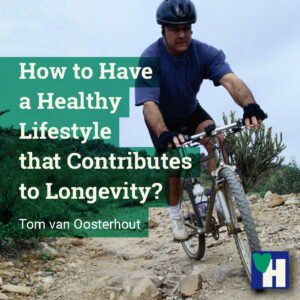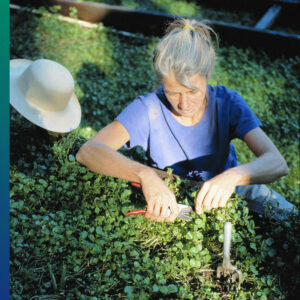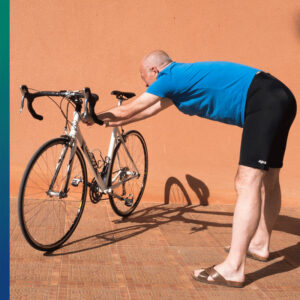
How to have a healthy lifestyle that contributes to longevity is a challenging issue. We’ve addressed this issue before. In this article, we present a new perspective by summarizing the key elements.
Fortunately, most people are in good health. They consciously arrange for a healthy lifestyle and longevity. They are very keen on adapting to a healthy lifestyle, are successful in doing so, and are very happy about it.
We think that everybody can copy their behavior, to improve longevity and age successfully. The trick is to adapt our personal lifestyle to their example.
Some of the links are affiliate links. As an affiliate associate, we earn a commission when you purchase any of the products offered through the shared links at no extra cost for you. This helps us maintain this website.
Table of contents
- 1 How to have a healthy lifestyle?
- 2 Conditions, risks, and personal tips
- 3 Proper food and hygienic conditions support our health
- 4 Don’t hesitate to use public medical and social support
- 5 Stagnation of longevity raises many questions
- 6 More women in the labor force
- 7 Psychological barriers to a change of lifestyle
- 8 How to have a healthy lifestyle and age successfully
How to have a healthy lifestyle?
Proper food, hygiene, and public medical and social support are the main conditions to support our personal health. With an eye for environmental factors and social inclusiveness.
Conditions, risks, and personal tips

To support our efforts to have a healthy lifestyle this article offers a threefold perspective. First, some of the major external conditions that enable a healthy lifestyle are explained. These conditions are proper food, hygiene, and public medical and social support.
Next, the external risks are discussed that jeopardize our efforts to improve longevity and successful ageing. These risks are pigheadedness, the general stagnation of life expectancy, unsupported emancipation of women, and psychological barriers.
We close this article with tips on how we personally can cope with the external risks and can profit from the external conditions. We explain what it takes to have a healthy lifestyle. A lifestyle that contributes to longevity and successful ageing.
Proper food and hygienic conditions support our health
Our first step to improve our lifestyle was to expand our awareness of what a healthy lifestyle is. A lifestyle that contributes to a longer life expectancy. We discovered that most transferable diseases disappeared when food got more abundant. This was possible due to agricultural mechanization.
The more food was produced, the cheaper it got. This enabled men and women to become physically stronger. The next contribution was the development of large-scale hygienic provisions.
Clean water, sewers, and personal care added to the benefits of more abundant food. Stronger bodies and hygienic provisions made men and women less vulnerable to transferable diseases.

Although the debate is fierce, there exists no evidence that social characteristics as education and income link health and longevity. The only advantage of people with a long formal education is that they are more sensitive to the enormous amount of information about a healthy lifestyle.
Social inequality is unjustified and must be fought. The first step in this fight is that we must realize that we’re all entitled to benefit from public medical and social support. Don’t shy away from such support when you think it will do you good.
Unfortunately, too many people are ashamed to fall back on the systems they contribute to by paying taxes. However, there’s nothing to be ashamed about. Many people who use support from public institutions benefited immensely from this.
Pigheaded doctors and their unhealthy lifestyle

Moreover, doctors are a rather alarming example of the limited truth of the information advantage of the well-educated. Doctors are the unhealthiest professionals on the globe. Even though they have been trained for a very long time, have access to all health information available, and usually are well-to-do.
For us as patients, this is rather upsetting because we all believe that they know everything about a healthy lifestyle. Are they ignoring that information because they think they know better? Are they pigheaded and thus take more risks? Does their job jeopardize their health? Or is it possible that they’re only focused on unhealthiness?
Stagnation of longevity raises many questions
There is a high and ever-growing quality of life for most people in the Western World. This is why the current stagnation of longevity – leaving the pandemic out of the statistics – makes many people nervous.
We wondered why, after an upsurge of over 100 years, the last couple of years the rise of longevity came to a halt. We found some very different explanations.
Longevity has its limits
The first explanation is that the average longevity age has reached its limits. Despite the so-called Blue Zones, the average longevity age has never and nowhere been much more than 80-85 years.
Extreme weather conditions due to climate change
Climate change is blamed to have an impact on longevity because of the increase in extreme weather conditions. Harsh winters bring more flu and combined with hot summers, prematurely end more lives of the elderly. This second explanation is, however, not very strong. It’s highly unlikely climate change has this type of effect on such short notice.
Stagnation in longevity due to stress and pollution

A third alternative explanation of the stagnation of longevity is that more and more people live in cities. This has a cumulative detrimental effect on living conditions. Cities are breeding grounds for communicable diseases, and specifically stress. Stress is aggravated due to the incessant amounts of city noise, and the constant crossing of private boundaries.
Cities also purport all kinds of temptations negatively affecting health and levels of wellbeing: an abundance of fast food, alcoholic beverages, and drugs. Moreover, cities are not made for healthy exercise.
All the more, the enormous amounts of traffic produce unhealthy particulate matter. Exhaust fumes from cars, public transport, and industry all contribute to the heavily polluted air. Although the effects of all this might have taken a while, we wonder whether after 50 years of incessant air pollution we are finally starting to experience these effects.

Stagnation in education and income levels
Another alternative explanation for the stagnation of longevity is a decline in supporting conditions such as decent income and education levels. Statisticians always relate longevity to education and income levels. The higher the education and income, the higher longevity.
Of course, higher education and income levels, as such, do not explain longevity. The stagnation of the education and income levels need to be explained before it’s possible to explain the relation with longevity. Having an academic degree does not make you healthy and is no guarantee for longevity. See the example of the doctors.
More women in the labor force
The entrance of more women into the labour force has a substantial impact on health and care. Probably in the long run also on longevity. Mind you, we are very much in favour of emancipation. What is important is that the consequences of emancipation must be better-taken care of. Women and men must be supported in achieving their emancipation efforts.
Higher stress levels

Despite the financial and economic crisis, anyway in Europe, more women acceded to the labour force during the last couple of decades. This has several significant consequences. For many people work is a source of stress. As explained above, stress has a major negative impact on people’s health. Combined with the increase in the consumption of alcohol and fast food this is not good news.
Low level of emancipation
But the rise of women in the labour force has some other less expected effects. Even in our emancipated times, most women do the shopping, prepare the food, and take care of the children. These past years there’s hardly been a rise in the hours men spent on household chores or childcare. As a consequence, the household hours of women did not decline. Their working hours have simply doubled. This certainly contributes to very high-stress levels.
Unhealthy eating habits
If women participate more in the labour force they have less time at their hands for shopping and cooking. They will rely more on prepared supermarket foods. This type of food does not tend to be too good for our health. Moreover, supermarkets specifically appear to market unhealthy foods.
Less informal care
When women spend more time at work, they have less time to take care of the children, the sick, and the elderly. A task that is mainly and traditionally reserved for women. And again, the men hardly stepped into the void left behind by their working female partners. This of course is not good news for the elderly that are deprived of the precious time of their children.
Psychological barriers to a change of lifestyle
As much as we like to link the stagnation of longevity to external conditions, we are the only ones that can seriously counter the risks of this stagnation. Only by adopting a more healthy lifestyle, these risks can be avoided.
However, this adaptation takes quite some personal effort. There are at least three psychological barriers we have to cross.
Freedom of choice
We’re all convinced that our lifestyle is a core expression of our personal freedom. Commercial companies, such as fast-food chains, and the food industry, emphasize in their advertising our freedom of choice and easy living. As a matter of fact, they make our choices, and these choices are in their best interest, not in ours.
Short and long term benefits

A change of lifestyle forces us to unlearn something we probably cherish already for many years. Take for instance a good glass of wine. That is a treat not easy to forgo. It’s so easy for us to eat and drink the things we love. We perceive the rewards in the short run to be far more beneficial than the costs in the long run. Courage and discipline, which help us fight for a healthier lifestyle, are easily challenged by habit and temptation.
Elitist babble
We perceive our lifestyle to be the best lifestyle. When we are challenged, or challenge ourselves, to change our lifestyle, we immediately fall back on our resistance mode: “Who do they think they are? Telling me what is right and what is wrong. Let them keep their elitist babble about health and social responsibility for themselves!”
How to have a healthy lifestyle and age successfully
Since the financial and economic crisis of 2008 austerity measures negatively affected public care services. This is a very strong argument for the stagnation of longevity.
However, a recent study, based on the analysis of long term data from the UK and The Netherlands, revealed how we can age successfully despite the numerous external risks and threats:
- With a high level of self-regulation (discipline; in control);
- Sufficient social support (e.g. a partner; strong family relations);
- A healthy lifestyle (physical activity and healthy weight) and the absence of chronic diseases;
- Proficient public medical and social security arrangements.
The good news is of course that longevity and successful ageing are within everybody’s grasp. Many people make the effort and are very happy about it. Reach out to us when you need support.
Did you ever change your lifestyle? Tell us about it and how it improved your life in the comment box below.


Thank you very much, Tom!
This is again interesting information that made me think about people are getting stronger. I have to admit that my thoughts were we might actually getting weaker due to the pollution of our environment, the overuse of antibiotics, the overuse of cleaning products, the overuse of medication, and of course, what you have mentioned in this post the wrong food choices. I believe that this all contributes to the development of chronic diseases. A shocking fact is the unhealthy lifestyle of doctors. Unbelievable! Maybe it is the stress of their daily work. Do you think that this fact hits more doctors working in hospitals, or are the GP’s also included?
It seems like women don’t own their lives; instead, they are owned by their family. Many women I know have the stress of caring for others and participating in earning the living costs. That is too much! There are high numbers of women suffering a heart attack. This is really a challenge.
I changed my lifestyle as a result of chronic disease and two burnouts I have suffered. There has been no choice for me if I wanted to survive. Today I am pleased I managed to leave my comfort food. I know of others who can’t manage a healthy diet and moving their bodies, even they have so much pain.
My back hurts quite a lot because of my job, and I tried to follow the exercises for my back and belly watching the video. I still feel the tension of my muscles. 🙂 Excellent exercises to include into my daily routine.
Hi again Sylvia,
Thank you for your comment and compliments. Always appreciated.
I’m sorry to read that you had, and still have, health issues. Although it’s no real comfort, you’re not alone in this. Hannie and I also had and have our share. Fortunately, it does not hamper our mobility or any of the many things we do each day.
The lockdown is actually the only real challenge we face, because we’re not allowed to travel. Nevertheless we’re far better off than many other people. For instance those who live in apartment buildings. We have a large garden and can go outside any time we want.
Back to our health issues. We face two serious problems getting older. The first is that our bodies are not made for longevity. Given the repair qualities of modern medicine nobody is surprised our current average age is +80. For centuries the average age did not pass an average of 40 years.
This started to change after the civil war in the USA (1861-1865). However, in a country such as Japan only after the Second World War the average age rose past 50 years of age.
The second problem we face is that the effects of all types of contaminants on our health will only be noticed when we’re dead and gone. The fight of these contaminants is a very tough uphill battle.
To answer your question about the doctors. As far as I know, there are no differences in the mortality rates of GP’s and specialists. Stress is a factor. Doctors are also very close to the ‘medical candy box’ (they tend to overuse medication). They’re also a bit overconfident when it comes to their capabilities.
For now, stay safe, stay healthy.
Regards,
Tom